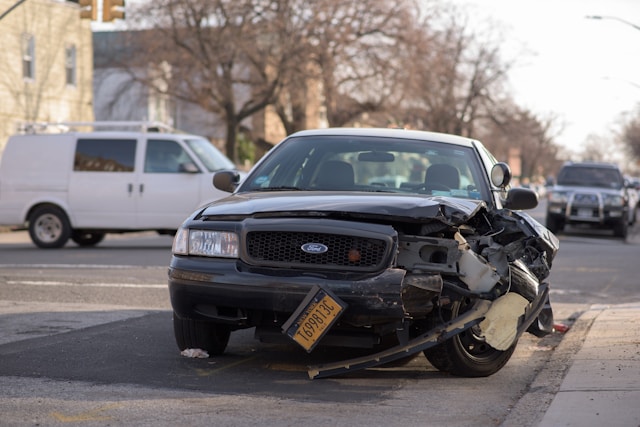Key Takeaways:
- Detailed exploration of civil litigation’s role in resolving car accident disputes.
- Guidance on the crucial steps to undertake immediately after experiencing a car accident.
- In-depth discussion on the importance of establishing negligence in car accident cases.
- The strategic importance of professional legal representation in car accident claims.
- An analysis of settling claims versus taking them to trial.
- Overview of recent legislative changes affecting car accident litigation.
Table of Contents:
- Introduction to Civil Litigation and Car Accidents
- Steps to Take After a Car Accident
- The Role of Negligence in Car Accident Claims
- Filing a Car Accident Lawsuit
- Dealing with Insurance Companies
- The Importance of Legal Representation
- Recent Changes in Car Accident Claims and Litigation
Introduction to Civil Litigation and Car Accidents
Individuals often navigate the complex world of civil litigation after a car accident. This legal process is designed to provide a systematic way for people to resolve disputes and achieve recourse outside the criminal justice system. Civil litigation encompasses a wide array of disputes. Still, in the context of car accidents, it typically pertains to the pursuit of compensation for injuries, property damage, and other losses incurred due to the accident. The primary purpose is not to determine the criminal culpability of the parties involved but to ensure that the injured parties can obtain just compensation for their harm.
Steps to Take After a Car Accident
The moments immediately following a car accident are chaotic and disorienting. Nevertheless, the actions taken during this critical time can significantly influence subsequent legal claims. Safety should be the foremost priority, assessing the well-being of all involved and seeking immediate medical attention. Once safety concerns are addressed, documenting the scene becomes vital, as well as photographs, jotting license plate numbers, and exchanging contact information with witnesses. Secure a copy of the police report, which will serve as an authoritative event record. All this documentation may later prove invaluable when discussing the incident with a Tampa car accident attorney or presenting a case in court.
The Role of Negligence in Car Accident Claims
A foundational aspect of car accident claims is the principle of negligence. To receive compensation, the plaintiff must prove that the other party failed to exercise a reasonable standard of care, leading to the accident. This breach of duty must be directly linked to the injuries sustained. There are cases where the negligence is clear-cut, but often, it is ambiguous and open to interpretation. Establishing negligence is a nuanced process that examines factors such as the breach of traffic laws, distracted driving, or driving under the influence. The legal intricacies of proving negligence emphasize the benefit of seeking knowledgeable legal guidance.
Filing a Car Accident Lawsuit
Deciding to file a lawsuit is a significant step and usually occurs after negotiations with insurance companies have failed to yield acceptable compensation. The initial phases involve drafting a complaint, which outlines the legal basis for the claim and the damages sought. Potential plaintiffs must consider the statute of limitations, which sets a deadline for filing a claim. Missing this deadline can bar any legal recovery. Additionally, plaintiffs should be aware of possible defenses the defendant might use, such as comparative negligence, which can reduce the claimant’s compensation if they are found to be partially at fault for the accident.
Dealing with Insurance Companies
Insurance companies play an intricate role in the aftermath of a car collision. Interactions with insurers require careful navigation as their primary interest is minimizing financial exposure. Policyholders should meticulously review their insurance coverage and understand the extent to which they are entitled to claim it. Only hastily agree to settlements after comprehensively assessing the long-term impact of injuries and damages received. Policy limits, the maximum amount the insurance will pay under a policy, also come into play and might affect the strategy in pursuing additional compensation through litigation.
The Importance of Legal Representation
Securing legal representation is often a vital step in the civil litigation process. The complexities and nuances of the law can be daunting, and having a proficient attorney by your side can help ensure that your rights are protected and your case is presented as strongly as possible. The right legal advocate can negotiate with insurance companies, handle all aspects of court proceedings if necessary, and work tirelessly to get the compensation they deserve.
Recent Changes in Car Accident Claims and Litigation
The legal landscape for car accident claims is constantly shifting, impacted by the evolution of state laws and regulations. Staying informed on the latest legislative developments is crucial, as they can affect the entire spectrum of the claim process—from insurance coverage parameters to liability rules. For instance, the adoption of newer technologies like dashcams can also play a role in the evidentiary proceedings of such cases. Understanding these changes can provide crucial insights for anyone involved in a car accident claim, and resources such as the Insurance Institute for Highway Safety – State Laws offer an in-depth look at these developments.









